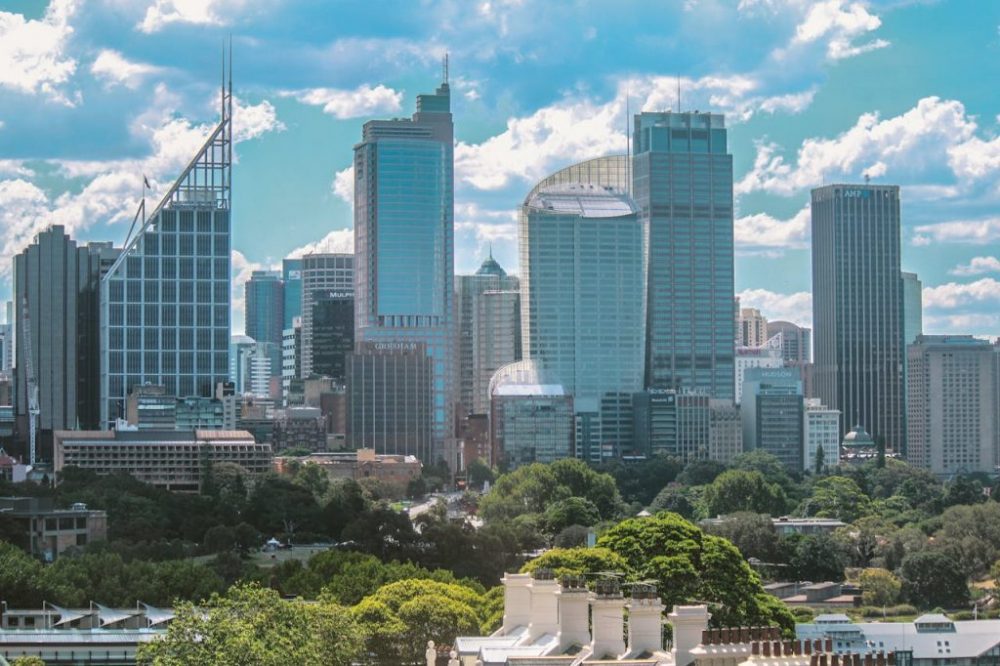In 2024, the global real estate bubble is a critical concern as cities worldwide experience shifting housing market dynamics. High interest rates, restrictive financing, and increasing construction costs have created volatility. While some cities, such as London and Hong Kong, have seen a decrease in bubble risk, others face growing concerns due to luxury market demand and favorable local conditions. Below are the top 10 cities most at risk of real estate bubbles this year.
Top 10 Cities Most at Risk of Global Real Estate Bubble
1. Miami
Miami has the highest bubble risk among major cities, with a Bubble Risk Score of 1.79. Since 2019, Miami’s housing prices have skyrocketed nearly 50%, driven by demand for limited waterfront properties. The city’s relatively low cost of living compared to other U.S. metropolises and the absence of a state income tax make it appealing. Miami’s price-to-income ratio is among the highest, illustrating the strain on affordability as luxury housing drives prices up.
2. Tokyo
Tokyo has a Bubble Risk Score of 1.67, showcasing high real estate bubble risk. The city’s monetary policies and economic stability have led to surging property prices. The price-to-income ratio in Tokyo is particularly high; last year, a modest apartment cost up to 15 times a skilled worker’s annual salary. Tokyo’s real estate market now surpasses London and New York in unaffordability, highlighting the pressing issue of housing access.
3. Zurich
Zurich, with a Bubble Risk Score of 1.51, places third in real estate bubble risk. The city has experienced a surge in property values due to economic growth and increased demand for urban living. Zurich’s high price-to-rent and price-to-income ratios are particularly concerning, showing that prices are growing faster than wages and rental yields, placing it firmly in the bubble risk category.
4. Los Angeles
Los Angeles is classified as overvalued with a Bubble Risk Score of 1.17. Limited inventory, a booming luxury market, and desirable coastal living drive rising housing prices. Although Los Angeles remains highly desirable, its soaring price-to-income ratio creates affordability challenges, particularly for middle-income residents seeking homeownership opportunities.
5. Toronto
Toronto has a Bubble Risk Score of 1.03, and while its bubble risk has lessened, it remains overvalued. Toronto’s real estate market has cooled slightly, but high property prices continue due to strong demand and a price-to-rent ratio that remains high. Toronto’s mortgage-to-GDP ratio also shows potential risk, making the market sensitive to changes in economic conditions and interest rates.
6. Geneva
Geneva, with a Bubble Risk Score of 1.00, faces risks similar to Zurich's due to high demand in a relatively small urban area. Geneva's tight housing supply pushes prices up, and its price-to-income ratio underscores this strain. Despite not reaching full bubble status, Geneva’s market remains overvalued, indicating a need for careful monitoring as economic pressures persist.
7. Amsterdam
With a Bubble Risk Score of 0.98 and a high price-to-rent ratio, Amsterdam is signaling that rental incomes are not keeping pace with property values. The city’s appeal as a cultural hub attracts global investors, increasing demand for prime real estate. However, the combination of high prices and low rental yields makes Amsterdam vulnerable to market corrections, placing it firmly in the overvalued category.
8. Sydney
Sydney has a Bubble Risk Score of 0.78, and while not in bubble territory, the city’s property market remains overvalued. Sydney’s attractive lifestyle, climate, and job market draw in buyers, pushing prices upward. However, Sydney’s high price-to-income ratio reflects affordability concerns. The city’s strong demand for housing continues to stretch residents’ budgets, emphasizing its precarious market position.
9. Boston
Boston has a Bubble Risk Score of 0.78 and a price-to-rent ratio that remains a cause for concern. The city’s high property prices reflect its economic stability and status as a leading education and innovation hub. However, Boston’s affordability remains an issue as high real estate prices put pressure on buyers and renters, keeping it undervalued.
10. Vancouver
Vancouver has a Bubble Risk Score of 0.77, where high prices and strong demand drive bubble risk concerns. Vancouver’s proximity to nature, appealing climate, and international appeal attract buyers from around the world. The city’s high price-to-income and price-to-rent ratios contribute to its overvalued status, making it a market to watch as global economic conditions evolve.









